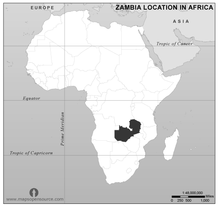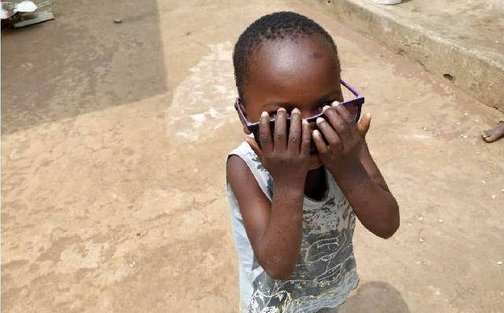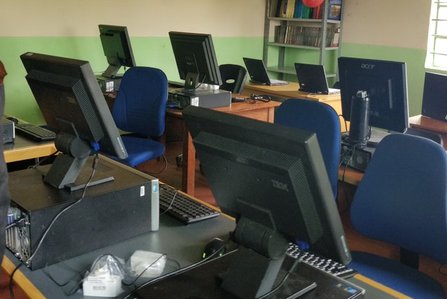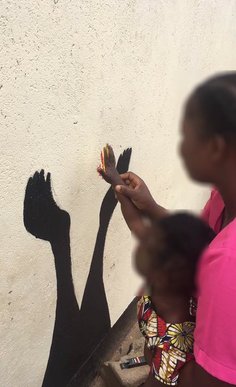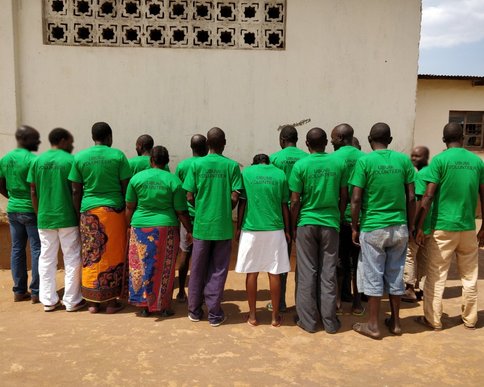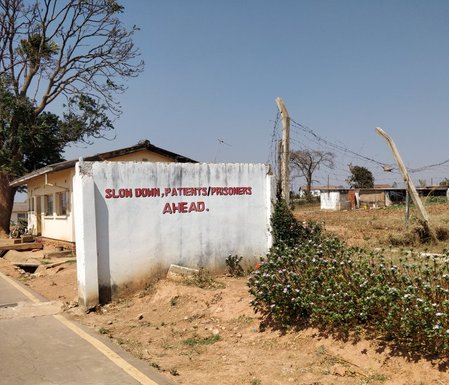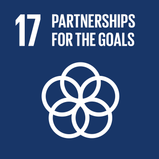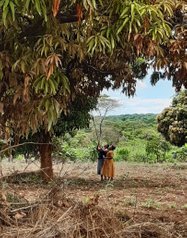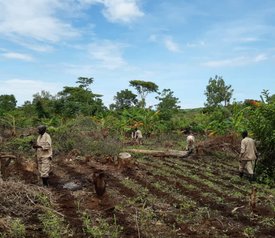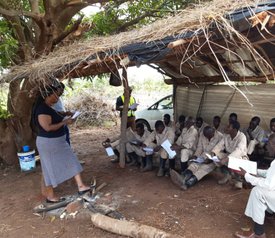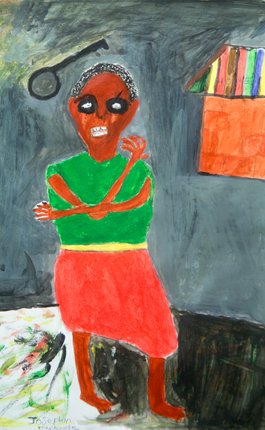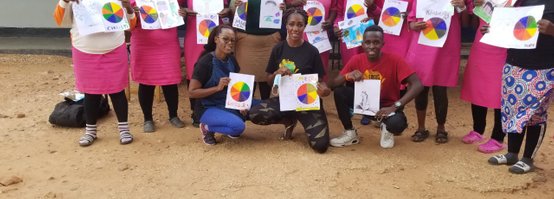Projects
Ubumi focuses human rights for all prisoners and particularly vulnerable groups
Ubumi Prisons Initiative works from a rights based approach to support the most vulnerable in Zambian correctional facilities. We work with health and wellbeing under the very real restrictions imprisonment imposes. We target especially circumstantial children, who are with their mothers in prison, pregnant women, mothers, juveniles, the mentally ill and psychologically vulnerable as well as seriously ill patients. Our work contributes to improved health and reduced mortality.
Ubumi works hand in hand with civil society organisations, Zambia Correctional Service and other public authorities to make a difference. We work at grassroot level inside the correctional facilities all the way up to government level. A key focus of our work is to keep government accountable to human rights standards.
We actively look for ways in which inmates and correctional staff can be empowered to take ownership and contribute actively towards the improving life in correctional facilities.
Our approach is cost-effective. We work to identify and make use of existing resources, both human and material. In this way, both inmates and corrections staff make a major contributions to our projects, and are by no means passive recipients. Volunteers make a major difference every day for the health, wellbeing and education for other inmates, juveniles and circumstantial children.
We work from a human rights based approach within the fields of health, including mental health, human development, education and reintegration. We work mainly with Sustainable Development Goals 1-6, 10 and 16.
The project for the children, pregnant women and mothers
Prisons hold children up to 4 years old. They are with their incarcerated mothers, and need support. The children suffer, because the Prisons Act does not address their needs, and the food they get is therefore at the discretion of the Officer in Charge at the individual prison. Often, the children have to share their mothers meagre ration. Further, they grow up in a stressful environment with little positive stimulation. Our projects set out to alleviate these problems:
The staple food in correctional facilityies are nshima (maize porridge), beans and/or kapenta (little pieces of dried fish of poor quality) from the prisons, which is far from nutritous enough for healthy development. The mothers and pregnant women therefore receive a food pack from Ubumi with nutritional supplements, soap and other necessities once a month in each of 'our' four female correctional facilities (Mukobeko, Chipata, Kamfinsa and Lusaka).
We have created Play Houses or Play Corners for the children, where they can play and learn, and where the women in the prison can take literacy classes. In a stressful environment, it is of immense importance for normal child development to stimulate the children cognitively and socially through play and
Juveniles
The projects for the juveniles are about nutrition and general wellbeing and life skills development. The juveniles in the Zambian correctional facilities are aged 12-18, but may be even younger. Many are awaiting trial herewith aquittal or conviction, others are awaiting transport to juvenile reformatory institutions, and again about 150 (on average) are at Katombora Reformatory School in Livingstone (outside Livingstone in the bush).
Each facility varies a bit in terms of Ubumi activities, but in general we work with Corrections staff to ensure that we have good natured and responsible adults looking after the kids, that they get nutritional supplements, and that the youth receive the opportunities to engage in educational activities (basic schooling), sport and activities during the day. This is of course to alleviate the stress and incarceration which affect children and youth profoundly. We also work with music and art, and have had well-known Zambian musicians (rappers for instance) make music with the boys.
We have based on his work published the Inspiration Catalogue for Life skills, Sports and Activities.
The seriously ill project
Correctional facilities are heavily affected by diseases, which include outbreaks of diarrheal diseases, tuberculosis and HIV/AIDS and skin diseases. A major issue is malnutrition causing deaths is lack of nutritious foods, as AIDS patients cannot take their medication unless they receive a minimum level of nutritious food. At times, serious epidemics ravage the correctional facilities, such as dysentery.
The project is multi-pronged:
- Prevention of infectious diseases through safe drinking water and improved hygiene
- Treatment and support of the seriously ill by volunteer inmates, supervised by correctional facility
health staff
- Improved nutrition through large vegetables projects, poultry and fish projects
- Provision of basic necessities
The project for the seriously ill entails a team of approximately 5-15 volunteer caretakers, 1-2 cooks, 2-4 volunteer chlorine dispensers and 4-5 volunteer gardeners in each correctional facility. The caretakers are trained in hygiene, nursing, nutrition and the main diseases found in correctional facilities. The group is managed by an inmate with the title ‘Ubumi Inmate Coordinator’, who works closely with the correctional facility health staff to deliver quality services.
The volunteer inmate caretakers provide nursing services, incl. support to adherence to medication, washing, cleaning and feeding of patients. Ubumi delivers protein, disinfectant, soap etc. We have a system in place to prevent or stop diarrheal outbreaks before lives are lost. The hygiene measures reach approximately 7700 inmates out of the 21,000 inmates in the Zambian correctional facilities. Vegetable projects ensure regular provision of vegetables and fruits specifically for the ill, but also for the general inmate population. The project has a cook, who cooks nutritious meals for the patients.
The project renders important results, including improvements in health and survival. The number of deaths inside 'our' correctional facilities have reduced significantly from 50% up to 90%.
Education
Support to the schools for inmates
Computer science is part of the Zambian schooling curriculum. A resourceful inmate started a computer lab before Ubumi started working in Kabwe Maximum Security Prison. It needed newer printers and computers, and Ubumi were able to support. Since 2012, Ubumi has supported the IT-lab with huge success, and has furthermore established computer labs in Kabwe Medium, Lusaka and Chipata.
The inmates get to learn about computers practically, and not only through reading about it in theory. The programmes are popular and there is always a long waiting list of inmates wishing to learn more.
Together with for instance Zambia Library Services and Game Rangers International we also provide books for prison libraries. We have stocked 12 libraries around the country.
Education aids reintegration into society following release from prison. It is vital for the individual and society at large that prisoners leave prison with options that enable them to avoid falling into poverty related crime.
Inmates taking the lead
Inmates take the lead in changing the lives of others
Inmates are far from passive recipients of outside aid. They take on reponsibility for others in many ways. There is little doubt that imprisonment is very harsh leaving many to fend for themselves. Yet, care comes in different shapes. It can be the prisoners who share their food. Prisoners who help the most vulnerable with their own small means.
But this is not the only way prisoners work actively to improve the lives of their fellow inmates. Schools are run by inmates, serving as teachers. Inmate Psycho-social Counsellors are educated to support inmates who have problems.
In our project for the ill, volunteer inmates lead and support the project as coordinators, gardeners, cooks, chlorine dispensers and importantly as caregivers for children and patients.
On the photo to the right you see a group of our amazing volunteers in one of our facilities. Unfortunately, we are not able to show pictures of their faces.
Mental health
The situation of mental health in prisons is double bound. Persons with mental disorders are overrepresented in crime statistics and thus vulnerable to imprisonment, which alone contributes to high levels of mental health problems in prison. At the same time, prisoners are particularly vulnerable in terms of risk of developing mental illness due to imprisonment alone. Incarceration is extremely stressful and generally detrimental not only psychologically, but physically and socially as well. There are factors in many prisons that have negative effects on mental health, including: overcrowding, various forms of violence, enforced solitude or conversely, lack of privacy, lack of meaningful activity, isolation from social networks, insecurity about the future (work, relationships, etc.), and inadequate health services, especially mental health services, in prisons
In Zambia, certain categories of mentally ill (some patients with schizophrenia etc.) prisoners (named HEP – His Excellency’s Pleasure) will be sent to a mental health hospital, but many remain in prison for a long time, awaiting transfer, but others remain in prison despite being obviously very ill. In recent years, Correctional Services has employed at three health staff with competence in psychiatry in at least two different prisons (Two psychiatric nurses and one clinical officer specializing in psychiatry). The Service however is limited by resources and challenges relating to health systems management.
Ubumi works to build capacity of Zambia Correctional Service and partner organisations and we work to advocate for the mental health of inmates. In 2021, we work with the organisation IBF to sensitize ZCS staff at all levels, build capacity of health care workers, as well as
Advocacy, National Coordination, Partnerships, Capacity Building
Ubumi participates in the Prisons Health Advisory Committee, a national level coordinating body, chaired by Zambia Correctional Service. The PHAC meets monthly to discuss issues, share experiences and optimise efforts. Ubumi contributes to the annual work plans and strategic work in general. We also participate in the annual PHAC retreats, where we work actively to set the agenda with the aim of improving coordination, transparency and collaboration between the various institutions, such as government agencies, partner organisations and the Zambia Correctional Service.
Lena Kresojevic, Country Coordinator, represents Ubumi on the board of Southern Africa Network of Prisons (SANOP), where she sits as treasurer. SANOP is a membership-based organization that exists to serve the prison and ex- prison community and promote human health and dignity in Southern Africa. The organization Coordinates regional efforts to promote the rights of inmates, ex-inmates and their families for community re-entry and succesful reintegration.
Additionally, we collaborate closely with several Zambian-based organisations to coordinate and optimise interventions.
The Farm in Chipata
A farm in Chipata close to the border of Malawi hosts a number of activities. We have former inmates and vulnerable community members who are part of a project, where they engage in a variety of learning activities and get working experience within the field of agriculture. The farm grows a variety of vegetables and each trainee gets his/her small portion of land where they can grow food for themselves and/or for sale. A number of the trainees get the opportunity to enter local training college and receive TEVETA-certificates.
My little tiger
I am like a little bird with a broken wing
I can’t fly am like a little rat chased by the cat everyday
I am like a house without a door
I am like a flame without a spark.
(...)
My little tiger,
Always remember I cherish you
To the moon and back
Keep growing strong and stronger
I cherish and adore you
And I am coming back for you.
- Extract from poem by a mother in prison
POETIC EMPOWERMENT
Ubumi works with Circus Zambia to empower inmates to express themselves through art and poetry. A recent project supported by CISU - Civil Society in Development - focused on female inmates in Lusaka Central Correctional Facility. Here, a group a mothers received the opportunity to express them through art and poetry. The women embraced the opportunity and worked in such a committed fashion to express their deepest emotions. They touched upon feelings of depression, anxiety and themes of abandonment, violence, motherhood and incarceration were worked on.
Circus Zambia received capacity building within the methodology of facilitating poetry and art workshops.
The Ubumi Model
Ubumi works based on some basic principles outlined below:
- A holistic and strategic approach to problem-solving designed to the individual setting
- Inmate empowerment through project management (volunteer inmates implement and manage the project, supported by health staff, partner NGO’s, Ubumi and Corrections Management)
- Volunteerism
- Inmate skills building – all volunteers receive basic education/skills development training within farming, nursing, cooking or similar, which will benefit the project inside prison, but also the individual inmate upon release
- Staff support and commitment for health through collaboration and capacity building
- Help for ’self-help’ – vegetable gardens, poultry and fish projects create the opportunity for sustainable provision of foods
- Strong checks and balances for good management
Benefits of the Ubumi Model
- Improved health and conditions for the ill, the children and other vulnerable groups specifically, but also for the general prison population
- Skills-building and education of staff and inmates
- Capacity to manage projects
- Commitment and support by staff
- A sense of meaning and purpose for the inmates (in contrast to the meaningless existence in prison)
- A sense of contributing positively to other people’s lives – for both staff and inmates


